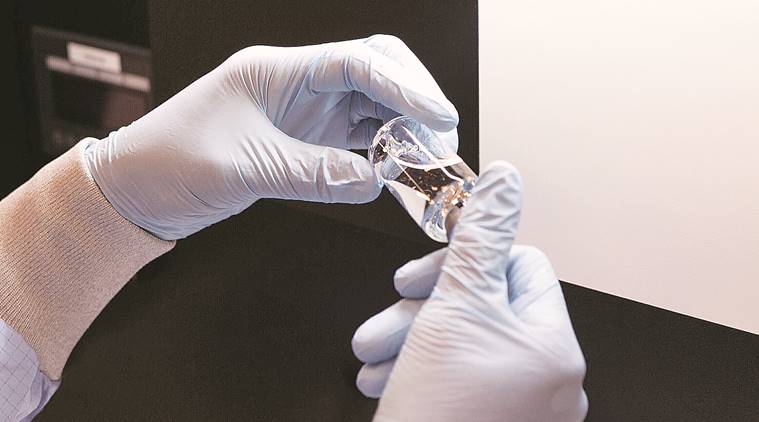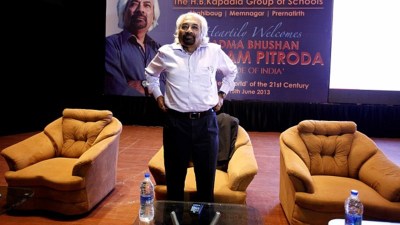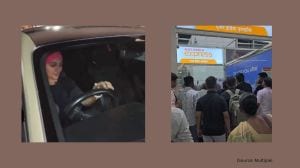- India
- International
CSIR labs working at par with international peers to discover Covid-19 drug: Scientists
Shekhar Mande, director general of CSIR, chaired an online discussion centred on COVID-19 research with the directors of six laboratories operating under the council.
 Scientists said India had recently emerged as one of the largest exporters of hydroxychloroquine (HCQ) and the drug had, so far, shown good results. (Representational)
Scientists said India had recently emerged as one of the largest exporters of hydroxychloroquine (HCQ) and the drug had, so far, shown good results. (Representational)
Scientific institution in the country were working at par with international peers to discover an effective drug to fight coronavirus (COVID-19), said senior scientists of Council of Scientific and Industrial Research (CSIR) on Saturday.
Shekhar Mande, director general of CSIR, chaired an online discussion centred on COVID-19 research with the directors of six laboratories operating under the council.
Talking about the ongoing trials of drug-potent molecules for coronavirus, Ram Vishwakarma, director of Indian Institute of Integrative Medicine, Jammu and Kashmir, said, “Four to five potential molecules, meant for coronavirus drugs, are either under stage two of trials or will soon enter trials. Private hospitals and pharmaceutical companies, too, are involved in the research.”
Vishwakarma said knowledge of traditional Indian medicine, some of them proven for over 5,000 years, was also under consideration for drug development in India. In this regard, a hospital in Gurugram was carrying out research and, soon, hospitals in Mumbai and Pune will commence similar efforts, he added.
Scientists said India had recently emerged as one of the largest exporters of hydroxychloroquine (HCQ) and the drug had, so far, shown good results.

“There is a certain window when HCQ can show the best results. Among all people showing early symptoms and medical practitioners who were put on HCQ, the results have been positive in 90 per cent cases,” said S Chandrashekhar, director, CSIR-Indian Institute of Chemical Technology, Hyderabad.
Suggesting a combination of HCQ with zinc, Vishwakarma said, “HCQ has been tried, tested and has been effective for over 50 years. A combination with zinc, which activates HCQ, is recommended.”
Many CSIR labs, along with other scientific institutions in the country, have been at the forefront of the COVID-19 research. Mande said, “This is the result of investment in science.”
Genome sequencing of this virus has been making a slow but steady progress, said senior scientists. “The patient enrolling is still underway, and we are still two months away from the actual process,” said Rakesh Mishra, director, CSIR-Centre for Cellular and Molecular Biology, Hyderabad.
Lav Agarwal, Joint Secretary, Ministry of Health and Family Welfare, had recently said plasma therapy was not a fool-proof treatment for COVID-19.
“The challenge is to find people who have recovered from COVID-19 and quality plasma,” said Dr Anurag Agrawal, director, CSIR-Institute of Genomics and Integrative Biology, New Delhi.
As wearing of masks will remain mandatory in the coming months, the need for developing reusable masks is growing. Research is on for developing reusable N95 masks, said Jitendra Jadhav, director, National Aerospace Laboratories, Bengaluru.
“The porosity of the material used in N95 masks ranges between 0.2 and 0.3 microns. Though this material can be recycled using ultraviolet light or chemicals, it has been recommended that a recycled mask be reused by the same user. We still need to work further for making masks reusable for all,” Jadhav said.
With the Centre announcing an extension of the nationwide lockdown till May 17, the CSIR scientists discussed measures and precautions needed after the lockdown.
Use of thermal scanners was highly recommended at public places as it was possible to detect 35 to 50 per cent people with fever, who could be otherwise carriers of the virus.
“In addition, measures must include compulsory wearing of face masks and practice of physical distancing. Overcrowding in a closed environment, where air circulation is limited, must be avoided,” Dr Agrawal said.
Click here to join Express Pune WhatsApp channel and get a curated list of our stories
May 09: Latest News
- 01
- 02
- 03
- 04
- 05





























